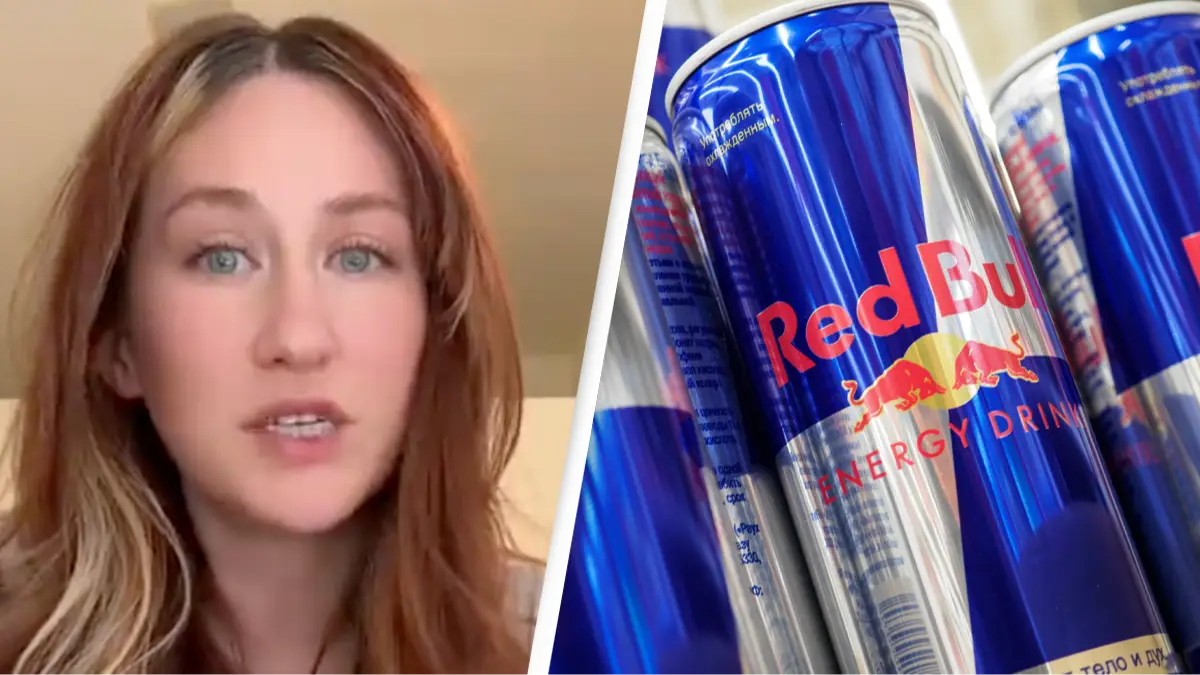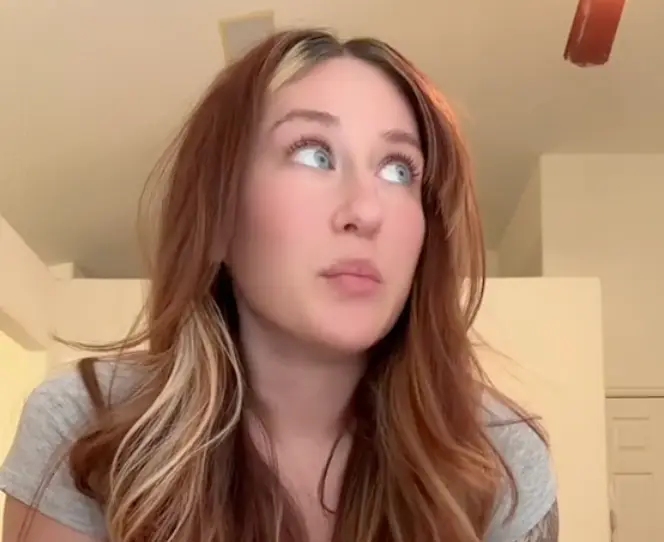
A TikToker has issued an urgent warning about energy drink consumption after her husband's 'hands and feet' started going 'numb' and he had to be rushed to hospital.
While energy drinks can be great as a one-off here and there when you need to do a late-night study session or get an extra burst of energy before a night out, there've been plenty of horror stories that've come out about the dangers of over-consuming them.
And now, a TikToker has a desperate warning for you.

Advert
Meagan took to her TikTok - @ladyshreve - earlier this year to share the story of what happened to her and her husband six months previously.
"This is the story about how I've become the obnoxious person that tells you that energy drinks are dangerous," she added.
She recalls being woken up one night at the beginning of January by her husband because he wasn't 'feeling great'.
"His heart was racing, his hands and feet were going numb and he just didn't feel right," she said.
Meagan initially thought he must be experiencing a panic attack so decided to 'wait it out,' but her husband asked her to call 911.
With it having been snowing, Meagan decided to go and start the car to drive her husband to hospital instead however, in the time she left to go and warm up the car, her partner's health deteriorated even further.
In the emergency room, Meagan explains her husband has 'chest pains,' his 'heart is racing' and he 'feels like he's going to pass out'.
"In a matter of less than a minute, he was telling the woman 'I think I'm going to go down'," she continued.
Then, her husband's 'heart stopped,' alarms started ringing and a nurse began chest compressions.
"It was all fast, it was all scary," Meagan recalled, saying she was told her husband was 'choking' and 'vomiting' while sat in a side room waiting to see him.
When she was reunited with her husband, Meagan was told he had suffered 'broken ribs' as a result of them resuscitating him.
After being discharged, he was sent to a cardiologist and put on a heart monitor for around five to six weeks, however there were still no 'answers' for what may've caused his deterioration.
Doctor ultimately resolved 'there was essentially nothing wrong with him' and that it 'came down to the fact they think that he was dehydrated and was having too many energy drinks'.
In a follow-up video, Meagan continued: "The emergency room doctors said they were attributing it to the Red Bull."
She added when the cardiologist didn't have 'any definitive answers' they also attributed it to 'the Red Bull'.
Meagan continued: "Both of these places are saying we don't know what caused it but if this is the thing that led up to it it is almost certainly the Red Bulls."
Meagan urges anyone else who consumes multiple energy drinks a day to consider their actions more carefully and how it can impact not just them but loved ones too.
She said: "If you're someone who's downing two, three, four energy drinks a day, I would highly recommend you to stop."
Red Bull's website states: "Health authorities across the world have concluded that Red Bull Energy Drink is safe to consume.
"One 250 ml can of Red Bull Energy Drink contains 80 mg of caffeine, the same amount as in a cup of coffee. The European Food Safety Authority (EFSA) concluded in 2009 that the ingredients of energy drinks are of no concern.

"In 2015 and 2017, the EFSA confirmed the safety of energy drinks and their ingredients. All ingredients of Red Bull products are labelled on the can."
On how much Red Bull is safe to drink, it continues: "One 250 ml can of Red Bull Energy Drink contains 80 mg of caffeine, about the same amount as in a cup of coffee. The consumption of Red Bull Energy Drink should conform to a person’s intake of caffeine.
"Many authorities around the world have looked at the effects of caffeine. The European Food Safety Authority (EFSA) concluded in its scientific opinion on the safety of caffeine (2015) that caffeine intake of up to 400 mg per day (five 250 ml cans or five cups of coffee) does not raise safety concerns for the general healthy adult population. This is in line with similar findings from the US Food and Drug Administration (US FDA) and Health Canada."
UNILAD has contacted Red Bull for comment.
Topics: Health, Social Media, TikTok, Viral